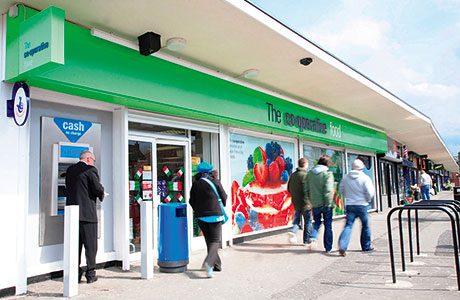THE turmoil surrounding Britain’s largest mutual retailer The Co-operative showed no sign of abating late last month after the giant group announced a major senior management reshuffle, in the wake of the resignation of its chief executive Euan Sutherland, and delayed the release of its annual results.
The results are now due to be published on 17 April and some observers expect the group to report losses of more than £2bn.
Sutherland resigned after details of his reported £3.6m remuneration package, said to include significant retention bonuses, appeared in a Sunday newspaper and other media.
The chief executive’s exit was, at that point, the latest in a remarkable sequence of events. Major questions had been raised about the health of the Co-operative Bank after it walked away from a deal in which it would have bought more than 630 branches of Lloyds Bank.
Sutherland joined as group chief executive shortly afterwards. But shortly after that it became clear that Co-operative Bank, which had previously taken over the deeply indebted Britannia Building Society, had a £1.5bn capital shortfall.

The shortfall forced the bank into a deal where it will be floated off as a separate entity next year and will be owned largely by United States hedge fund investors.
In June last year Co-operative Bank chairman and Co-operative Group vice-chairman Paul Flowers quit the bank and resigned from his group role. Later it would be reported that the resignation came after concerns were raised about excessive expenses.
Flowers was later to be arrested on drugs charges.
Group chairman Len Wardle resigned last year to be replaced by Ursula Lidbetter.
Late last year former Marks and Spencer chairman Lord Myners was appointed as an independent director to lead a review of group corporate governance.
In February this year it was announced that the group intended to sell its farms and was considering selling its pharmacies business also.
Last month, after Sutherland resigned as CEO, the group’s finance director Richard Pennycook was appointed interim boss. He will take on the new role of chief operating officer when a new permanent CEO is appointed.
Late last month Co-operative Bank was said to be likely to report losses of more than £1.2bn. It announced it planned to raise a further £400m to cover costs including those associated with its separation from Co-operative Group.
While the bank-related problems have been grabbing the headlines, Co-operative Food has been busy developing new format stores, overhauling its own-label ranges and more.
It remains to be seen how fallout from the co-operative group’s financial crisis will affect day-to-day operations in its retail businesses and links and relationships with other independent co-operatives.





















